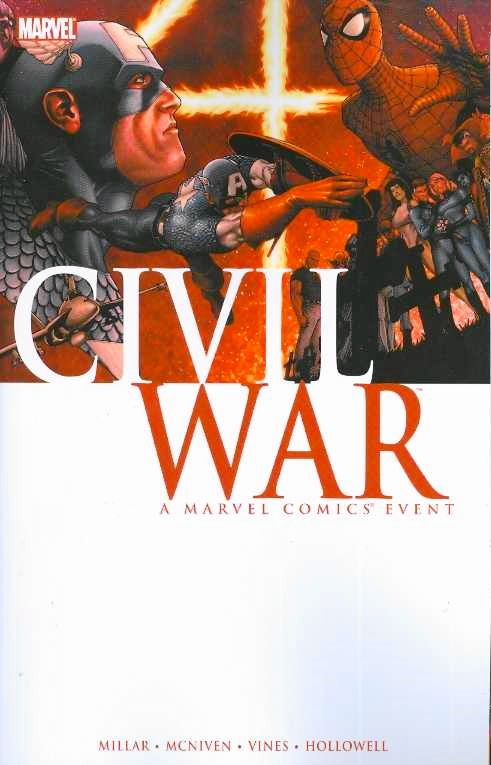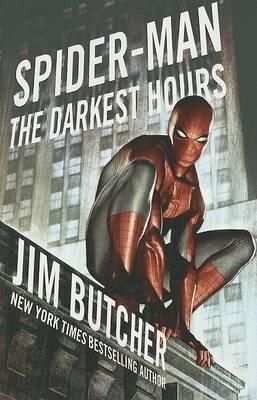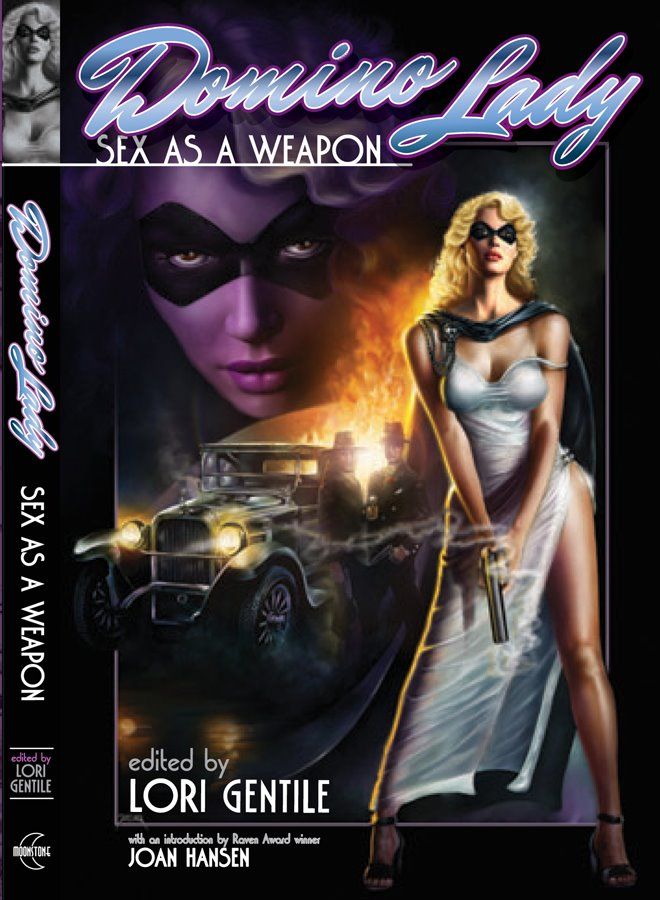Haven't been reading a whole lot of superhero comics lately... but somehow several superhero prose novels arrived all at once. So I figured I'd look at those this week.
I should preface this by saying that for most of my life, things like 'novelizations' and numbered series books were regarded as trashy kitsch that really didn't have any artistic or literary merit at all. It was bottom-of-the-barrel publishing, books hacked out by people under various pen names while they tried to get their real books accepted by real publishers.
And to be honest, for me that was part of their charm. There was something deliciously subversive and underground about all these trashy paperbacks.
And this certainly was the case with superhero paperbacks, well into the 1990s.
All this is by way of saying that it suddenly struck me how much the climate has changed when I realized that, with one exception, all these superhero-type novels I'd read over the last week and a half or so were either hardcovers or classy trade paperbacks. To me that just feels... weird. (Not bad, not by any means, but it's odd.) Your mileage may vary.
For example, there's Wayne of Gotham, the new hardcover Batman book by Tracy Hickman. This came out in June of this year, and it's a pretty good book. It's the story of a terrible experiment Dr. Thomas Wayne was part of back in the 1950s, and the repercussions of those actions coming back to haunt Batman today. What struck me about this novel was how ambitious it was-- Hickman is telling a big story here, with genuine repercussions for both Batman and everyone around him, and DC somehow agreed to let Hickman break the toys. There's no magic reset button at the end.
That said, I have to admit that I admired this book more than I enjoyed it. I never quite felt immersed in the story, and honestly I'm tired of seeing heretofore unrevealed adventures from Batman's early days or from when Bruce Wayne was a child. I'm especially tired of revelations about Thomas and Martha Wayne that prove everything we know about Joe Chill is wrong.
But I have to be fair-minded about it-- my distaste at seeing a Batman adventure go there yet again doesn't negate the fact that of the stories in this very particular sub-genre, there are good ones and bad ones, and Hickman's Wayne of Gotham is a pretty good one. His vision of Batman seems a lot closer to Tony Stark than Bruce Wayne, which I'm not crazy about but it certainly makes sense in context. So let's say this one is cautiously recommended. If the minor caveats I mentioned don't bother you, you'll enjoy it-- it's a well-crafted read that's hard to put down. Hickamn can tell a good story and keep it moving. The fact that it's not exactly the kind of Batman story I was hoping for doesn't mean it's not done well. Just not really to my taste.
Another couple of books I had mixed feelings about are Marvel's new hardcover versions of their more famous comics stories. The first is Stuart Moore adapting Millar and McNiven's Civil War and the second is Peter David adapting the "Gifted" arc from Whedon and Cassaday's Astonishing X-Men.
Frankly, if you've already seen the comics, I don't know that there's anything here for you. I've talked before about this and I'll say it again-- if you are going to embark on a project like this, then for God's sake, bring something new to it.
This idea of adapting big sprawling comics stories into prose novels was made popular in the 1990s, when DC put out prose versions of Death of Superman and Knightfall. But those stories were huge, in the comics they took years to play out. Even when those comics were collected into trade paperback editions it took multiple volumes to do it. In cases like that, sure, it's nice to have the story in one convenient prose package, and additionally the writers that did those projects also did heroic work in sussing out the parts of the story that were really necessary and streamlining them to where they don't feel bloated. Exhibit A: Denny O'Neil's wonderful prose version of Knightfall. Exhibit B: Greg Rucka's prose adaptation of No Man's Land. Exhibit C: Greg Cox with 52 and Countdown. And so on.
But I just don't see the point of doing prose versions of stories that are already available in single-volume trade paperback comics editions.
These new prose books aren't just throwaway, disposable novelizations, after all-- they're major hardcover releases, Marvel is throwing a lot of PR oomph into them. I see from the end of Gifted that Alisa Kwitney is on deck with a similar hardcover prose version of New Avengers: Breakout. So Marvel's committed to this as a series.
I suppose the theory is to market books to people that have seen the movies and want more, but don't frequent comics retailers. (Which would make a sort of sense if graphic novels weren't such a growing part of the retail bookstore business. Not quite as big a boom there as manga digests, but there's definitely no shortage of Marvel and DC product in your average big-box bookstore.)
I honestly don't see any reason why Marvel goes to the trouble of getting someone like Peter David, who's even got a proven track record of writing original superhero prose novels that merit a hardcover premiere and sell well, and then handicaps him with insisting he do a prose adaptation of a story that has already sold well in its comics version-- a comics version that is available not just in comics shops but also in bookstores, and in multiple printings and formats, even. I'd think an original, new X-men prose novel would be just as valid a business proposition and have a wider audience. But then, I'm not a Marvel exec.
Of these two books, Peter David does a slightly better job in Gifted of extending, extrapolating, and filling in-- it's pretty obvious that he's aware that there are fans who'll pick the book up who know the story already, and he's certainly conscientious about trying to give us a little extra. But the rigors of doing an adaptation ensure that it's only a little, and I'd have to say that if you've already seen the comics versions then you'd be better served to skip these. On the other hand, if you missed the comics incarnation of Civil War or Gifted, and for whatever reason you'd rather have prose than comics, then these are for you.
A book that, for my money, is a great example of doing this right is one that came from Marvel a few years ago... Jim Butcher's Spider-Man novel The Darkest Hours. I picked this up on impulse, during our recent excursion to Oregon, and I really dug it. Of the Marvel and DC prose books I've read the last couple of years, this one is easily the best. It's a great read and moves like lightning.
The story takes place during the years when Spider-Man was still married to Mary Jane Watson, and is in fact a direct sequel to J. Michael Straczynski's first arc featuring Morlun and Ezekiel. Now, a lot of people, including me, have had unkind words to say about the JMS tenure on Spider-Man, but I should say that his early years on the book-- basically, everything he did with John Romita Jr.-- was great stuff, as far as I am concerned. (With the exception of the 9/11 special issue, which I thought was pretty ham-handed.) But overall the book was the best it had been in a decade. The wheels didn't really come off the wagon for me until "Sins Past."
And the first arc with Morlun was a favorite of mine. So to have Jim Butcher revisit that in his novel was a real treat. The story is that Morlun's equally powerful siblings have come to New York to avenge his death, and they've recruited the Rhino to help them. I don't want to spoil it for you but it's a tense, exciting ride and it's got a lot of cool character bits, especially with the Rhino. Butcher also has the story narrated entirely in the first person by Spider-Man himself, which is tremendous fun. My only cavil-- and this is a teeny-tiny one-- is the hyper-idealized, Perfect Wife version of Mary Jane here, which tends to shore up my theory that hardly anyone in superhero comics knows how to write realistic married people, not even the married folks. By the end of the book I was thinking that maybe a less goddess-like MJ would have been a better choice. But that's just a fussbudget thing and anyway, Peter telling a story in the first person probably would idealize his wife.
Overall, though, when it comes to superhero prose, the publisher to beat is still Moonstone. I never get tired of the variety they bring to their various prose anthologies, and the latest two of these to cross my desk-- The Green Hornet - Still at Large and Sherlock Holmes: The Crossovers Casebook are no exception.
They're the newest offerings in Moonstone's series of volumes collecting short stories about various pulp superhero adventurers. (Technically, I suppose, you can't count the Holmes book as a superhero offering but it sure feels like one, right down to the Brave and the Bold high-concept of teaming Holmes with other literary heroes that drives the thing.) The Green Hornet book is the third anthology featuring that character that they've done, and it's just as much fun as the first two were. I think my favorites are still the Spider, Lone Ranger and Domino Lady collections, but that just means those are the peak offerings of a really great backlist catalogue.
There are a couple of other books I ran across that technically are not pulp or superhero offerings, but I think they merit a mention here.
The first one is Peter David's novelization of the feature film Battleship. I happened upon this paperback while Julie and I were on one of our outings; it was in a Goodwill for fifty cents and looked absolutely brand-new. This was a case where it was strictly on the strength of the writer's name, because I had zero interest in the movie, and also because it was a new book for fifty cents-- so even if I turned around and sold it at a garage sale for just a buck I'd still double my investment.
But I won't be doing that, because the book turned out to be pretty damned good. In fact, it was good enough that Julie and I went ahead and invested another couple of bucks in the Battleship DVD. I discovered that the movie was okay and probably deserved better, but the plain fact is that David's book kicks the movie's ass on every level, it was out-and-out good. Mr. David fixed most all of the major plot holes and added lots of good material about the aliens themselves and their motivations. If we are to have movie novelizations, they should all be done with this degree of craft and care. Recommended unreservedly whether you've seen the movie or not.
And finally, I saved the best for last. Without question, the single most entertaining pulp-adventure-superhero novel I've read in the last few months is the wonderful Jane Carver of Waar by Nathan Long.
This is a book that anyone can enjoy, but it holds a special resonance for those of us who came of age during the early 1970s when Burroughs, Howard and Tolkien (and their respective knockoffs) dominated the SF and fantasy paperback scene. Basically, Jane Carver is an unapologetic pastiche of Edgar Rice Burroughs' Mars novels in particular and the "planetary romance" genre in general, but instead of Burroughs' heroic cavalry officer John Carter, Nathan Long gives us Jane Carver, a foul-mouthed honky-tonk gal with a mean left hook who isn't going to take any shit from any aliens, princes, or monsters. The book is both an affectionate parody and a rousing adventure, the kind of thing that really can only come from someone who's had a lifetime love affair with the genre. Mr. Long has Jane telling us this story in the first person (just like Burroughs did with John Carter) and as such, the narrative itself is endlessly entertaining. Imagine A Princess of Mars as told by an angry biker chick and that should give you the sense of it.
This a terrific example of what I was talking about before, the idea of bringing something new to the proceedings. There have been lots of Burroughs and Howard pastiches, but not very many of them have Jane Carver's wit and style. The sequel, Swords of Waar, is out in November and I'll be first in line for it.
*
That's all I've got this time out.
At least, until I manage to put a bigger dent in the review pile... the stack of stuff publishers have been sending is getting pretty high again and I really need to address it. (Apparently, we now live in a world where not only have superhero books become literary and respectable, but somehow I have too. This just boggles my mind if I let myself think about it.)
...But I'll have more on that, and the review pile, next week. See you then.












